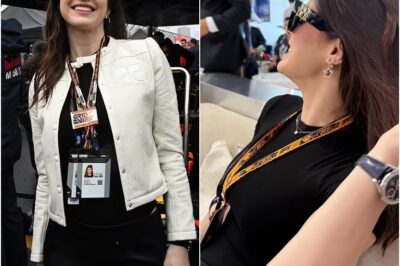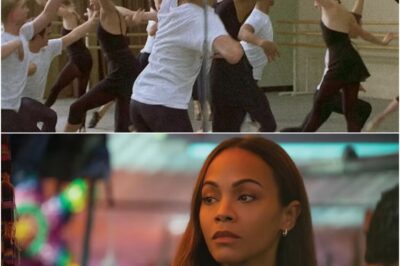Lin Dunn, director of the Indiana Fever, has sparked controversy by calling for Brittney Griner’s expulsion from the U.S. Olympic team following Griner’s protest during the national anthem.

Dunn criticized Griner’s actions, stating that athletes who disrespect the anthem should not represent the country. This statement has ignited a debate about the balance between personal expression and national duty.
Griner, known for her social activism, protested to highlight systemic injustices, a move supported by some but criticized by others who feel it undermines national unity.
Dunn’s call raises broader questions about patriotism, protest, and the role of athletes in society. The debate continues to evolve, reflecting tensions between individual rights and national pride.
Lin Dunn, a revered figure in women’s basketball and former coach of the U.S. Olympic team, has ignited a firestorm of controversy by calling for Brittney Griner’s removal from the national roster ahead of the Paris 2024 Olympics.
Dunn’s statement, “If you disrespect the American anthem, you don’t deserve to represent this country,” resurrects long-standing debates about patriotism, protest, and the responsibilities of athletes on the global stage.
The backlash and support surrounding her remarks underscore the complex intersection of sports, politics, and national identity in an increasingly polarized society.
Dunn’s criticism stems from Griner’s past actions during the national anthem, which have drawn both condemnation and praise.
The two-time Olympic gold medalist and WNBA star has knelt or remained in the locker room during “The Star-Spangled Banner” in solidarity with social justice movements, echoing protests popularized by Colin Kaepernick in the NFL. While Griner has never explicitly detailed her reasoning, her gestures align with broader athlete activism addressing systemic racism and police brutality.
Dunn, however, views such acts as incompatible with representing the United States, arguing that the Olympics demand unwavering respect for national symbols.

The controversy taps into a deeply rooted cultural divide in America. For many, standing for the anthem is a non-negotiable display of patriotism, particularly for athletes wearing the red, white, and blue. Critics of Griner’s protests argue that the Olympic platform, meant to unify nations, should remain apolitical.
Yet others contend that athletes, as influential public figures, have a moral obligation to use their visibility to highlight injustice. This tension reflects a broader societal struggle: Can one love their country while critiquing its flaws, or are such critiques inherently disrespectful?
Griner’s own history complicates the narrative. Her 10-month detention in Russia in 2022, following a controversial drug conviction, transformed her into a symbol of resilience and diplomatic tension.
Upon her release, she spoke openly about the emotional toll of her imprisonment and the lack of support she felt from some corners of the U.S.
Her return to the WNBA was met with mixed reactions, with some fans celebrating her perseverance and others questioning her loyalty. Dunn’s remarks risk reigniting scrutiny of Griner’s patriotism, overshadowing her athletic achievements and personal sacrifices.
The U.S. Olympic & Paralympic Committee (USOPC) has historically navigated such dilemmas cautiously. In 2021, it relaxed rules prohibiting protests during the Games, allowing gestures like raising a fist or kneeling during the anthem—a significant shift from its previous stance.
This policy change acknowledged the evolving role of athletes as advocates but also drew criticism from those who believe sports should transcend politics. Dunn’s call to expel Griner challenges this compromise, urging a return to stricter enforcement of patriotic norms.
International perspectives further complicate the debate. While the U.S. grapples with its internal divisions, other nations have embraced athlete activism.
At the 1968 Mexico City Olympics, Tommie Smith and John Carlos famously raised gloved fists in a Black Power salute, enduring severe backlash but later being celebrated as civil rights icons.
In contrast, countries like China enforce rigid expectations of athlete conduct, suppressing dissent in favor of national unity. The U.S., caught between these extremes, faces pressure to define its own identity—either as a beacon of free expression or a guardian of tradition.

Social media has amplified the discourse, with #StandWithBrittney and #ExpelGriner trending in opposing camps. Supporters argue that Griner’s advocacy amplifies marginalized voices, while detractors accuse her of undermining national pride.
The polarization mirrors broader political divides, where issues of race, justice, and patriotism are weaponized in partisan battles.
For Dunn, a Hall of Fame coach known for her no-nonsense leadership, the issue is clear-cut: “The Olympics are about representing your country, not protesting it.” Yet this stance risks alienating athletes who see their platform as a catalyst for change.
The implications extend beyond Griner. If the USOPC were to adopt Dunn’s position, it could set a precedent for excluding athletes who engage in any form of protest.
This raises questions about the limits of free expression in sports and whether patriotism should be a litmus test for Olympic eligibility.
Conversely, permitting protests could invite backlash from sponsors, fans, or international observers, potentially overshadowing athletic achievements with political theater.
Griner’s response—or lack thereof—adds another layer to the story. Known for her humility and focus on basketball, she has largely avoided public commentary on the controversy.
Her silence, however, speaks volumes in an era where athletes are increasingly pressured to take sides. Whether she chooses to address Dunn’s remarks directly or let her performance on the court answer critics, her presence in Paris will undoubtedly carry symbolic weight.
Ultimately, the debate transcends sports. It reflects a nation grappling with its identity in a time of social upheaval. Can the U.S. reconcile its ideals of freedom and equality with the realities of systemic injustice? Can athletes honor their country while demanding it do better?
Dunn’s call for Griner’s expulsion forces a reckoning with these questions, challenging Americans to confront what it means to represent a nation still striving to live up to its promises. As the Olympic torch makes its way to Paris, the world will be watching—not just for medals, but for the values America chooses to showcase.
News
BREAKING: Lily Collins’ EMOTIONAL 36th Birthday—‘First as a Mama!’ Shares RARE Photos of Baby Tove & Husband Charlie!
Lily Collins celebrated her ‘first birthday as a mama’ as she turned 36 on Tuesday – and shared sweet family snaps…
BREAKING: White Lotus Star Alexandra Daddario TURNS HEADS at Australian Grand Prix—VIP Photos LEAKED
Alexandra Daddario flaunted her luxurious life at the Formula One Grand Prix in Melbourne. The White Lotus star, 39, was pictured on the grid…
I’m Convinced Alexandra Daddario Is The Perfect Casting Choice To Play Wonder Woman In James Gunn’s DCU
Alexandra Daddario has all the needed elements to bring Wonder Woman to life in the new DC Universe and make her performance as memorable…
Zoe Saldaña Says Oscars Rejecting ‘Avatar’ Acting Is ‘Quite Deflating’: ‘You’re Overlooked and Then Minimized and Completely Disregarded’
Zoe Saldaña, the acclaimed actress known for her roles in blockbuster franchises like Avatar and Guardians of the Galaxy, has never been one…
BREAKING: Zoe Saldaña’s FORGOTTEN Ballet Movie DESTROYS Her Oscar Role—Fans SCREAM ‘This Is Her REAL Masterpiece!’
Emilia Pérez is not the first time Zoe Saldaña has danced on screen, and her ballet performance in Center Stage showcased her musical…
BREAKING: Pixar’s NEW Movie Trailer LEAKED—Starring Oscar-Winning SUPERSTAR! Fans SCREAM ‘BEST ANIMATION EVER!’
After winning the Oscar for Best Supporting Actress for her performance in Emilia Pérez, Zoe Saldaña’s next movie will be the Pixar sci-fi movie Elio….
End of content
No more pages to load












